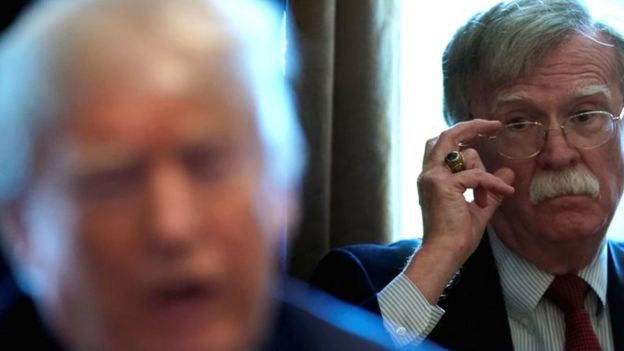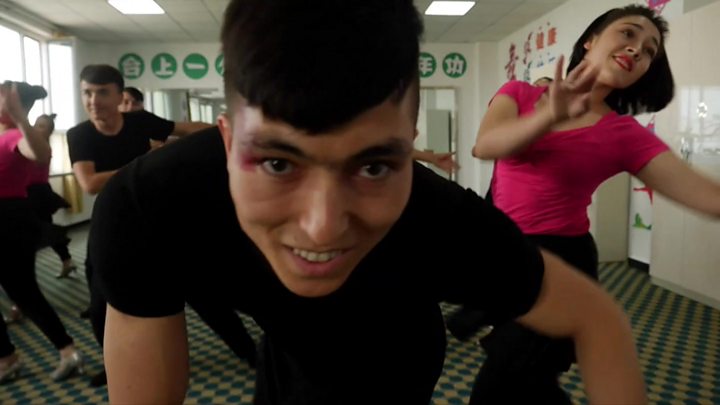Share the post "Trump held off sanctioning Chinese over Uighurs to pursue trade deal"
President Donald Trump says he did not sanction Chinese officials further over the detention of Muslims in Xinjiang as he was in the “middle of a trade deal”.
Mr Trump told the Axios news site that achieving a “great” deal meant he could not impose “additional sanctions”.
China has held about a million Uighurs and other ethnic groups in camps in Xinjiang for indoctrination and punishment but denies mistreating them.
The issue arose after allegations in a book by ex-Trump aide John Bolton.
Mr Bolton had alleged that at a summit last year Mr Trump gave Chinese President Xi Jinping the green light on building the camps in its western region, with the US leader saying it was “exactly the right thing to do”. Mr Trump denies the allegation.
What did Mr Trump tell Axios?
The president’s comments were made in an interview last Friday, which was then published by the US news website on Sunday.
Axios says that when Mr Trump was asked why he had held off imposing further sanctions on Communist Party officials over the issue of the camps, he said: “Well, we were in the middle of a major trade deal.
“And when you’re in the middle of a negotiation and then all of a sudden you start throwing additional sanctions on – we’ve done a lot. I put tariffs on China, which are far worse than any sanction you can think of.”

As part of a bitter trade war, the US imposed tariffs on more than $360bn (£288bn) of Chinese goods and China retaliated with tariffs on more than $110bn of US products before a “phase one” deal was signed in January.
Asked why he did not use the Global Magnitsky Act – passed by Congress in 2016 to counter human rights violations – Mr Trump said “nobody’s mentioned it specifically to me with regard to China”.
Axios also pressed Mr Trump on the allegation from Mr Bolton, his ex-national security adviser, that he had asked President Xi to help him win re-election by buying agricultural produce from US farmers.
“No, not at all. What I told everybody we deal with, not just President Xi, I want them to do business with this country. What’s good for the country is good for me.
“But I don’t go around saying, ‘Oh, help me with my election.’ Why would I say that?”
What is China accused of in Xinjiang?
Activists say China is trying to assimilate Muslim ethnic groups by force, by destroying their culture and banning their practices.

China says the camps in the autonomous territory are vocational educational centres that target Islamic extremism.
A report in March said tens of thousands of Uighurs had been transferred out of Xinjiang to work in factories across China.
Chinese state media said any labour transfer was voluntary.
What steps has the US taken?
The Trump administration has been criticised for not targeting China more openly on human rights.
However, some elements of the government have been publicly critical of China’s treatment of Uighurs.
The state department has levelled accusation of torture and abuse. It, along with the commerce department, have imposed some sanctions on Chinese officials over Xinjiang.
There are some import restrictions on Chinese companies, visa bars on some Chinese officials and some bans on goods produced under forced labour – but not stronger Treasury sanctions.
Last Wednesday, the president did sign legislation authorising US sanctions against Chinese officials over Xinjiang, but says he will decide on their use.
bbc